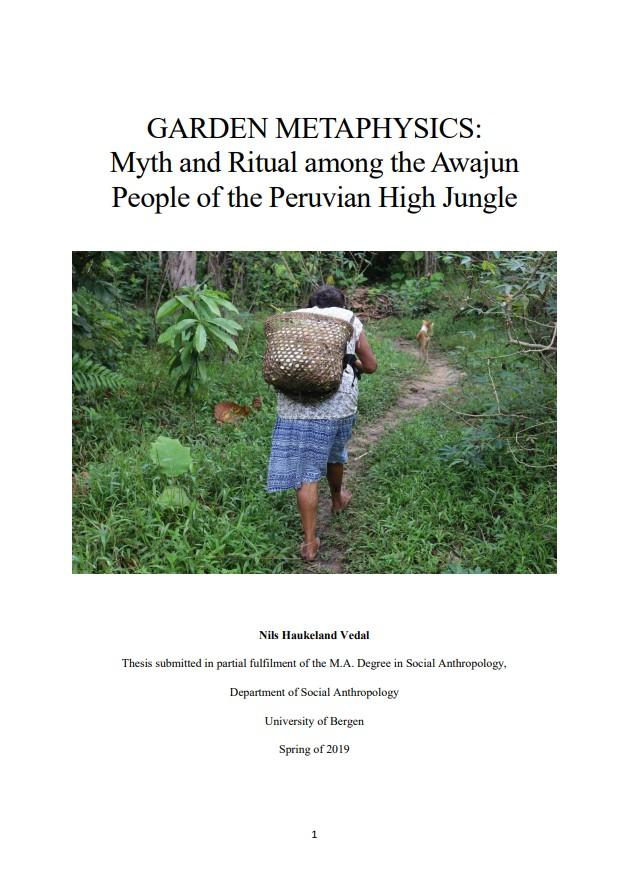GARDEN METAPHYSICS: Myth and Ritual among the Awajun People of the Peruvian High Jungle
Main content
Master's thesis submitted at the Department of Social Anthropology, autumn 2019.
By: Nils Haukeland Vedal
Supervisor: Professor Cecilie Ødegaard
This master thesis explores the intricate ways in which the Awajun people of the Peruvian high jungle practice subsistence gardening. The Awajun garden comprises a dazzling display of flora heterogeneity and their staple food is the sweet manioc. This root crop is surrounded by myths and rituals that give the garden a social character. Under special circumstances, notably during planting and harvesting, the manioc plants in the garden reveal their otherwise hidden human-like qualities. This potentializes communication between the Awajun horticulturalists and their plants and relationship are realised by use of the transformative properties of different incarnations called anen. Through these songs the Awajun gardener is able to, not only potentialize the non-evident humanity of her plant, but also to adopt the perspective of the mythical figure Nugkui, the master and mother of cultivated plants. By positioning herself in this way, the Awajun gardener is able to nurture her plants like a mother fosters her children through the dangers of the world. For the Awajun people, the garden is a realm in which the relations vowed between humans and plants make up a symbiotic circle based on co-dependency and nurture. Before reaching these focal points, the first part of this thesis will explore the general ecology and history of the Awajun garden, as well as broader changed to their society.
